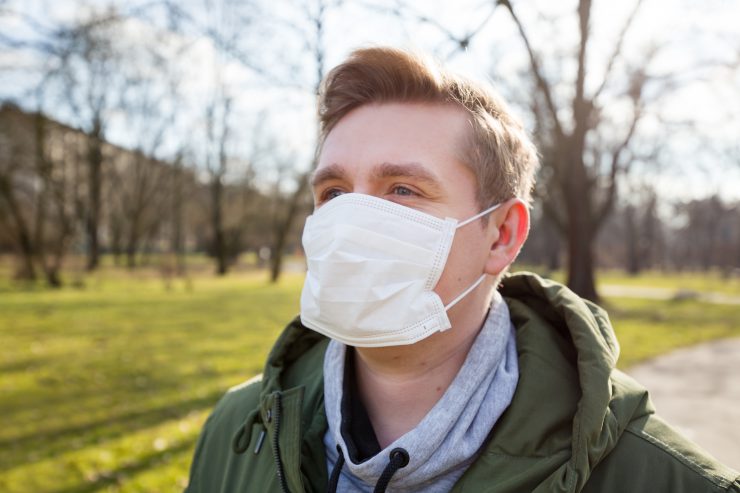Disclaimer: At UPMC HealthBeat, we strive to provide the most up-to-date facts in our stories when we publish them. We also make updates to our content as information changes. However, education about COVID-19 can shift quickly based on new data, emerging variants, or other factors. The information in this story was accurate as of its publish date. We also encourage you to visit other reliable websites for updated information, including the Centers for Disease Control and Prevention (CDC), Food and Drug Administration (FDA), and your state and local governments.
Updated March 1, 2021
As the COVID-19 pandemic continues worldwide, variants of the coronavirus SARS-CoV-2 have emerged. These variants are caused by mutations in the virus.
Reports of one newly identified and potentially more contagious variation of the virus in the United Kingdom have caused concern worldwide. Tightened restrictions imposed to control the spread in Great Britain have spurred officials in nearby European countries to ban travel from the U.K. The variant has spread to dozens of countries, including the United States.
Another variant, unrelated to the U.K. variant, emerged in South Africa in December.
The U.K. variant currently is the focus of intense debate and analysis. Here is what scientists have learned so far:
It is common for viruses to mutate. This variant is not some new kind of “super virus” — it is a mutation that has evolved as the virus has reproduced. As the virus spreads around the globe, it is constantly mutating or acquiring genetic changes.
The variant — known as B.1.1.7 — began to be seen more frequently in samples collected from people in southern England in December 2020. However, it had turned up as early as September in some British samples and in November in some South African samples.
“Mutations in the virus are being tracked all over the world, not just in the U.K.,” says Graham Snyder, MD, medical director, Infection Prevention and Hospital Epidemiology and lead epidemiologist at UPMC. “We do not yet fully know what these mutations mean.”
Never Miss a Beat!
Subscribe to Our HealthBeat Newsletter!
Thank you for subscribing!
You can now select the specific newsletters you'd like to receive.
You are already subscribed.
Subscribe to more newsletters in our email preference center.
Sorry, an error occurred. Please try again later.
Get Healthy Tips Sent to Your Phone!
More Information Is Needed
What surprised researchers about the genome of the U.K. variant was the relatively large number of mutations that it had acquired — 23 in total. Some of the mutations look as if they potentially could make the virus spread more easily.
There is no evidence at this time indicating the variant causes more severe illness, according to the Centers for Disease Control and Prevention (CDC).
“Based on how quickly the U.K. variant has emerged, there is concern that it is more transmissible, meaning that it may pass more easily from person-to-person than other variants of the virus that are circulating,” adds Dr. Snyder.
“Although the variant may be more contagious than the current strain of coronavirus, it does not necessarily mean that it is more dangerous.”
Researchers in the U.K. have found that the new variant of the virus is displacing a growing field of other variants that have been circulating for months. While a certain variant may become more common, that alone is not proof that it can spread faster than others. Sometimes a virus grows more widespread just by luck, such as a variant that starts in a crowded city where transmission is easier.
The new variant emerged as the U.S. Food and Drug Administration issued emergency use authorization (EUA) for new COVID-19 vaccines. So far, three vaccines — developed by Pfizer-BioNTech, Moderna, and Johnson & Johnson/Janssen — have received EUA. Distribution is currently occurring across the country.
Scientists do not yet have a full picture of the vaccines’ effectiveness against all COVID-19 variants. However, they should all provide some protection.
“There is no evidence yet that the virus identified in the U.K. is not protected against by the vaccine, but more information is needed,” Dr. Snyder says.
One possibility is the use of a vaccine “booster” dose to protect against COVID-19 variants that emerge.
At UPMC, researchers have been studying the new mutation to determine if any changes are needed in the precautions we recommend for public safety.
“We are working with our local virus research colleagues who are routinely looking for any virus mutations in our communities that may change how we stay safe,” Dr. Snyder says.
“Currently, the emergence of these mutations is not changing our infection prevention or vaccination plans.”
Editor's Note: This article was originally published on , and was last reviewed on .
About UPMC
Headquartered in Pittsburgh, UPMC is a world-renowned health care provider and insurer. We operate 40 hospitals and 800 doctors’ offices and outpatient centers, with locations throughout Pennsylvania, Maryland, New York, West Virginia, and internationally. We employ 4,900 physicians, and we are leaders in clinical care, groundbreaking research, and treatment breakthroughs. U.S. News & World Report consistently ranks UPMC Presbyterian Shadyside as one of the nation’s best hospitals in many specialties and ranks UPMC Children’s Hospital of Pittsburgh on its Honor Roll of America’s Best Children’s Hospitals. We are dedicated to providing Life Changing Medicine to our communities.

